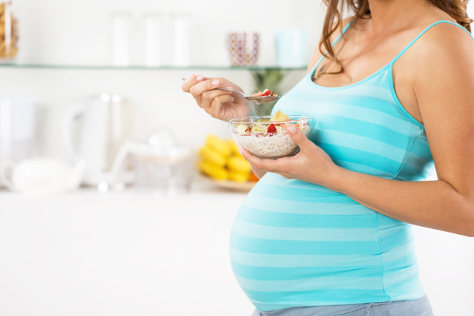Diet fit for pregnancy: What you need to know
It's never more important to eat well then when you are pregnant, so here's some help on when to start your pregnancy diet

There isn’t a definitive date when you should start making dietary adjustments in preparation for your pregnancy, but it is never too soon to take a thorough look at how balanced your current diet is in preparation for the process.
Before Pregnancy
If you’re planning on trying for a baby in the near future, now is a great time to break down your diet and review your intake of various key food groups. In reality it is never too early to ensure you’re eating a balanced diet and building a healthy environment ready for your baby.
To get off to a delicious, flying start make sure you’re eating:
- At least five portions a day of fruit and vegetables
- Lots of starchy food such as bread, pasta, cereals and rice. Whole grains are especially good due to increased fibre content over regular white rice and wheat products
- Two portions of protein a day, such as lean meat and poultry, fish, eggs and pulses (beans and lentils). Fish should make up about two portions a week and aim to include an oily fish in a weekly diet plan like mackerel.
- If you are vegan or vegetarian then take a look at our tips and advice on Bounty.com on getting what you need during pregnancy
- Low-fat dairy foods; aim for at least two portions a day of yoghurt or glasses of milk - these are important for calcium
- A selection of iron-rich foods such as red meat, pulses, dried fruit, whole wheat bread, green vegetables and fortified breakfast cereals. These build up your resources of iron in preparation for pregnancy
- In addition to the above, be mindful of your vitamin C, omega-3 and folic acid intake as these are all vital for a balanced diet in pregnancy
Don’t be intimidated by a dietary overhaul, as more often than not, eating a healthy balanced diet simply means changing the amounts of different foods you eat, rather than cutting out all of your favorites. A useful and informative guide on having a healthy diet is The Eatwell Plate, which clearly explains different food groups and recommended quantities you should be eating.
Tweaking your diet whilst trying to get pregnant might not directly increase your chances of conception, but it’s never too early to make positive dietary changes and start setting the habits recommended during pregnancy. Improving your eating habits little by little will give you and your baby the best chance for a healthy pregnancy.
During Pregnancy
Your diet for the first 3 months of pregnancy should avoid consuming excessive fats and sugars, and instead increase your intake of fruit and fibrous foods such as healthy cereals.
Be sure not to ‘eat for two’ as this isn’t true and can create negative eating habits which make it hard to maintain a balanced diet. It is recommended to increase your daily intake by around 200 calories per day during the final three months but with wholesome foods rather than sweets and sugars.
Remember that these are just the recommended amounts. It is important to listen to your body and answer cravings for food - the occasional treat is fine! Just be aware that fatty and sugary foods can fill you up, but do not provide the healthy content of other groups. If you are unsure on which foods to avoid during pregnancy, then be sure to read our guide on Bounty.com.
Finally, the last factor to look out for before and during pregnancy is water intake. It’s easy to forget about staying hydrated when you’re focusing on what you’re eating, but don’t neglect your fluids. This will ensure your body can flush out the bad bits - aim for around 2.5 litres of fluid a day.
For further information and tips surrounding diet and health in pregnancy, be sure to check out our dedicated pregnancy diet section on Bounty.com